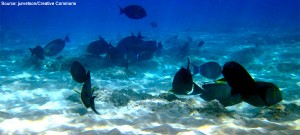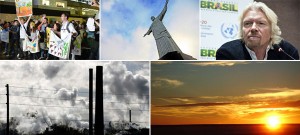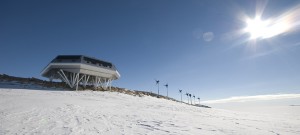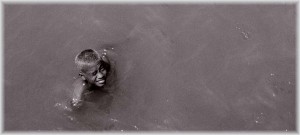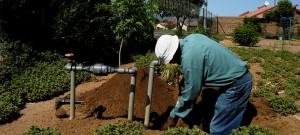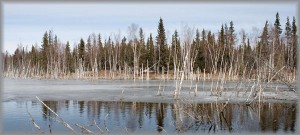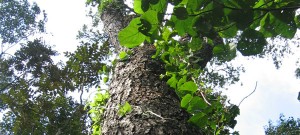Climate science
Climate Live: Climate change damage to be felt for centuries, Greenpeace launch new Arctic film and can Higgs Boson give hope to climate scientists?
The latest international climate change news, debate and video from RTCC.
CO2 emissions will impact climate for centuries to come, Carnegie Institution for Science report predicts
New study which examines pre-industrial revolution emissions finds they still impact climate today, warning current emissions’ impacts will last for centuries
Would a CCS leak be as damaging as the BP Gulf of Mexico oil disaster?
Carbon Capture and Storage still remains on the of the most viable technologies to aid climate change mitigation, but what would be the impacts of a CO2 leakage in the world’s oceans?
Climate change could cause Leatherback turtle populations in Costa Rica to collapse by 2100
Eastern Pacific populations of Leatherback turtles could drop 75% by the end of the century as a result of climate change, according to a study published in Nature Climate Change.
A week in climate change: Five things we learnt
In a Rio+20 special, we take a look back over at the news over the last seven days from both the Earth Summit negotiations and beyond to find out what we can learn from events this week.
South Australia to get “hotter and drier” from climate change, warns report
New report warns urgent adaptation is needed for local communities in South Australia to deal with hotter and drier conditions from climate change.
Good news: We have four environmental winners from Rio+20
What environmental frontiers emerged as the winners from the Rio+20 outcome document?
Photo of the week #24: Biodiversity & climate change, the last tree standing
This week’s photo of the week, the plight of disappearing woodland.
Rio+20: The underwater lab that could unlock the secrets of the ocean
A 58m sub-sea laboratory could drastically increase the length of time that scientists can observe the oceans.
World leaders must avoid empty ocean commitments at Rio+20, say researchers
New research ahead of the Rio+20 summit on sustainable development has found that commitments made over the last 20 years to protect fisheries have had little success.
Rio+20 Business Focus: Putting sustainability at the heart of Belgium’s Antarctica base
Brigit Fremault and Alain Hubert explain how the Princess Elisabeth Antarctica research base sustainability measures help scientists to study with minimal environmental impact.
Ocean warming a largely man-made phenomena, say researchers
New research finds that the warming of ocean temperatures over the last 50 years has been largely due to man-made greenhouse gases.
UNEP & REN21: 2011 saw record growth for renewable technologies
Two new reports find 2011 was a record year for both capacity growth and investment in renewable technologies, with a record investment of $257 billion.
Arctic ice melt sets stage for severe winters in US and Europe
New research warns that Arctic ice melt from climate change could increase the risk of severe winter weather in the US and Europe.
Scientists urge population rethink ahead of Rio+20
New study which warns the world is dangerously close to planet-wide tipping point calls for population to be drastically lowered, and for people to be forced to be materially poorer.
Photo of the week #21 – why Rio+20 must deal with threats to freshwater supplies
This week’s photo of the week illustrates the importance of having freshwater supplies and the threats placed on these supplies by climate change.
Rio+20 Business Focus: Reducing water and energy waste for a sustainable future
Watergy represents the strong link between water and energy. The Alliance to Save Energy explains how they have implemented their efficiency programme across the planet.
Callum Roberts: Sustainable fishing can feed a growing world population
RTCC continues analysing the latest work by Professor Callum Roberts – a comprehensive look at the state of the world’s oceans.
Photo of the week #20 – Climate change threatens the world’s Boreal Forests
This week’s photo of the week comes from the Northern Hemisphere’s Boreal Forests.
Rio+20 Business Focus: Kenya, Madagascar and Cameroon focus on preserving life-giving African cherry tree
How the conservation and sustainable use of Prunus africana is improving the lives of small-scale farmers in Africa.

